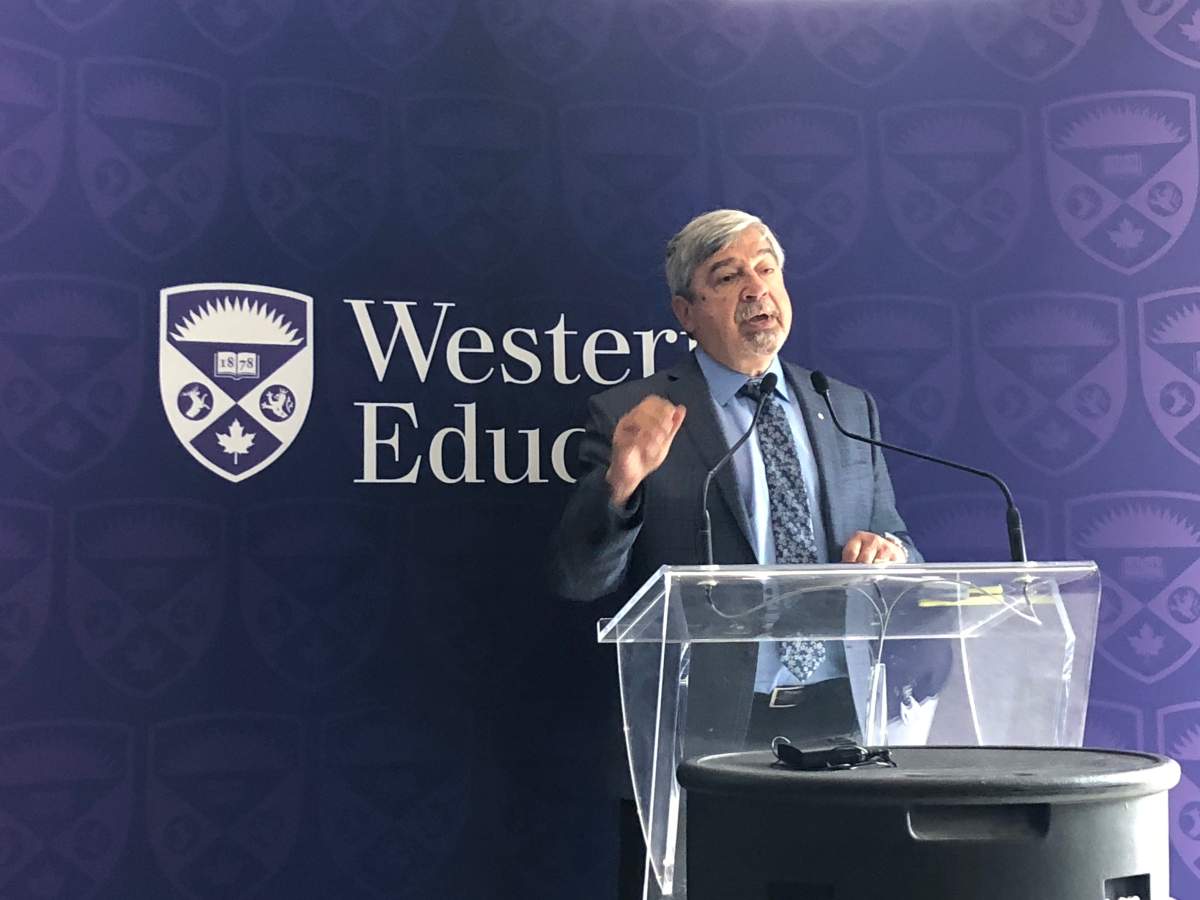A study into the causes of domestic violence is looking to hear from survivors and loved ones of victims to improve outcomes.

“The problem is not going away; we are seeing consistent patterns of domestic homicide across the country,” said Peter Jaffe.
From 2010 to 2019 there have been 662 victims of domestic homicide in Canada. That’s over 70 people a year, 8 per cent of those being children.
Peter Jaffe is the Academic Director of the Centre for Research & Education on Violence Against Women & Children at Western University.
Since 2015 Western University, in partnership with the University of Guelph, has been leading a research study called the Canadian Domestic Homicide Prevention Initiative, which is looking at the causes of domestic violence and how to help.
Jaffe said the first phase of the study involved speaking to over 300 experts and finding out the statistics, but added in the second phase they are dedicated to doing more than just counting numbers.
“This a call to all survivors of domestic violence. We want to find out how they survived.”
“Was it informal support? Was it friends and family? Was it a supportive work place? Was it an effective police officer or mental health professional?”
He said they also want to hear from victim’s families to find out what did not work.

Get breaking National news
The team is looking to speak to at least 200 survivors of severe domestic violence as well as family and friend who lost someone to domestic violence from 2006 to 2016.
“The best way to understand how to improve on current approaches is to listen to the voices of those who have experienced such violent issues,” said Guelph Sociology professor Myrna Dawson.
She added the research is crucial because it will be used to enhance polices and services in community responses.
Once complete. Jaffe said they will distribute their findings to various levels of government and law enforcement to work together on reducing the numbers.
Over half of the victims belong to one or more vulnerable populations, being either a child, Indigenous, immigrant/refugee, or from a rural or remote community.
WATCH: (July 12, 2019) #SheCouldBe Anti-Domestic Violence Program
-_TOR1ERE0_848x480_1570212931573.jpg?w=1040&quality=70&strip=all)
Alison Irons’s daughter, Lindsay Willison was living in a rural community for University when she was killed by an ex-boyfriend on April 5, 2013.
Irons said part of the problem is that in rural community’s guns are part of culture and her daughter’s killer had a history of suicide threats yet his guns were not removed from his home.
She added because her daughter was living in a small community, Lindsay’s killer was able to find her car in the school parking lot and locate her dorm to stalk her before killing her.
https://platform.twitter.com/widgets.js
Irons’ personal connection to domestic violence goes beyond her daughter’s death.
“40 year ago I was working in this field and I was on the board of a women’s shelter in northern Vancouver, British Columbia, and yet 40 years later here we are.”
“Domestic violence crosses all socioeconomic factors; race, religion, culture, and education levels.”
Irons added she will keep speaking out until she is able to see the problem of domestic violence reduced.
Anyone wanting to participate can do so by contacting the Centre for Research & Education on Violence against Women & Children at Western University at 519-661-2111 ext 81133, toll-free at 1-844-958-0522, or by emailing astraat2@uwo.ca.








Comments
Want to discuss? Please read our Commenting Policy first.